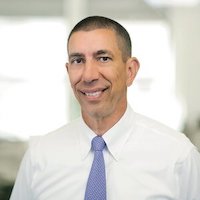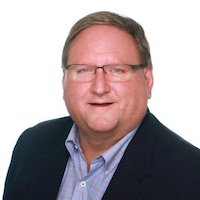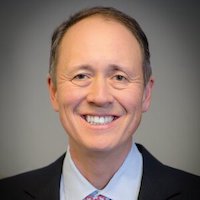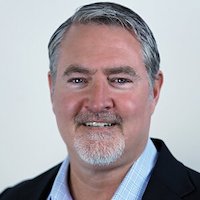
Rita E. Garwood,
Editor in chief,
Monitor
The top five players in the Monitor 101+ ranking — a captive, two bank affiliates and two independents — commanded 30% of the total market share and contributed 20.4% of the collective total new business volume of the Monitor 101+ group. We caught up with the leaders of each organization to learn more about these rising stars of the industry.
No. 101 — OnPoint Capital
OnPoint Capital, led by President Walter Stranzl, is the top Monitor 101+ company this year. Stranzl credits his work ethic to his parents, who were immigrant farmers from Austria. After starting out in accounting, Stranzl began his leasing career in 1996. In 2012, Stranzl joined the leadership team of GSG Financial and became its CFO one year later. In 2016, GSG was acquired by the OnPoint Group and in 2019 Stranzl was elevated to president of the firm, which was rebranded OnPoint Capital.

GSG Financial was an independent lessor that became a captive after the OnPoint acquisition. “We did not have to give up our non-captive business,” Stranzl says. “So we continue in that space.” On the captive side, OnPoint focuses on financing material handling equipment with its affiliates in the fleet management and guaranteed power businesses.
“By combining our finance solution with the fleet management and power programs, we have a terrific product,” Stranzl says. “A customer wants to have utility of their assets and maximize the useful life of that asset. What our affiliates do, we capture data, and we have a tremendous amount of AI on over 25,000 assets that our customers have been using for 15 or more years.”
Focusing on just below investment grade credit, OnPoint’s non-captive side focuses on copy and print equipment, which harkens back to the roots of GSG.
OnPoint has been included in the Inc. 5000 for seven years running. “I think that tells a big part of the story that our solutions work and provide benefit to our customers — that’s our focus,” Stranzl says. “We’re not a bank that originates billions of dollars and has cheap money, but we provide a solution which works for the client, and a result of our customer approach has fueled growth on our side.”
Stranzl encourages entities with material handling fleets to consider OnPoint. “It’s like outsourcing of the asset management life cycle,” he says. “We gathered the data — reviewing monthly invoices from vendors, tracking all of that information, providing historical information of similar types of equipment and similar industries. I am very fortunate to work for an organization like the OnPoint Group.”
No. 102 — Byline Financial Group
Byline Financial Group, a subsidiary of Byline Bank, has been in operation since 2003 and specializes in equipment financing. Lyndon Thompson has been at the helm for two years, providing full-service, customized finance programs to companies and vendors nationwide. Thompson has an accounting background and held various finance roles over the course of his career before becoming president of Byline Financial Group.

Originally focused on the healthcare sector, Byline does a lot of business with dental offices and ophthalmologists, according to Thompson, who has expanded Byline’s scope to include industrial material handling and compact utility equipment.
“Our go-to-market strategy is working with the manufacturers and vendors that deal with the types of equipment in those areas,” Thompson says, adding that Byline’s current focus is primarily on industrial material handling and expanding the healthcare channel.
With a nationwide footprint, Byline’s vendor channel currently accounts for about 70% of its business, and Thompson says it will most likely grow to 80% soon. The company also originates some indirect volume through its work with consolidators that operate in multiple lines of business, which allows Byline to pick and choose which channels to play in.
“We have a group of seasoned professionals here who have worked together for quite some time and that is our strength,” Thompson says. “We’ve seen enough in the marketplace, and leasing in general, that we can design programs to help provide our vendors and manufacturers with sales opportunities to help them sell more equipment. We’re a small, nimble shop here.”
No. 103 — North Mill Equipment Finance
David Lee has been CEO and chairman of North Mill Equipment Finance — the successor to Equilease — since late 2016. Previously, he led Colford Capital Holdings, the former parent company of North Mill Equipment Finance as well as its asset-based lending affiliate, North Mill Capital, until the sale of the equipment finance unit to affiliates of Wafra Capital Partners in 2018. Lee began devoting his full-time resources to the role of CEO after the sale.

North Mill is a diversified small-ticket equipment finance company. Lee has diversified the industries and credit quality of the company’s portfolio, which was historically reliant on the long haul trucking sector.
“Our strategy has been and continues to be 100% reliant upon referral partners,” Lee says. “We have well over 300 different referral partners who submit applications to us. We evaluate and approve the terms of every submission.”
Lee says North Mill decided to go with the indirect model for two primary reasons. First, the vendor channel was not a good fit for North Mill due to the need to build a direct sales team and North Mill’s focus on A through C credits. Secondly, Lee wanted flexibility in being able to pivot to different asset types. Rather than being limited to the equipment expertise of a sales team, North Mill finds that working with referral partners of varying specialties allows for greater flexibility to develop new asset categories.
North Mill achieved a 251% increase in new business volume in 2019. Lee credits a strong balance sheet through Wafra, a dedicated focus on referral partners, the decision to stop using auto scoring and an expanded management team for this remarkable growth.
“Probably one of the biggest product launches that we made, which has allowed us to achieve premium yields even with better credits and has differentiated us from the rest of the industry, is offering true loans that are pre-payable based upon principle, as opposed to FMV leases or equipment finance agreements that do not allow for early payoff,” Lee says.
“The expansion of our management team resources to complement the seasoned professionals who’ve been at North Mill/Equilease has positioned us to manage our growth,” Lee says. “Our COO, Mark Bonanno, has a deep operational and finance background from GE Capital. We could not have made all the operational changes and efficiencies that we have been able to make without his leadership. We have an incredibly strong CFO, Pier Snider, who also came from GE Capital, who has done a wonderful job in managing our banking and bond holder relationships. Don Cosenza, our chief marketing officer, who came from the health insurance industry, has done a great job of developing our successful referral partner network. The team we have in place positions us well to grow to my goal of reaching a billion dollars in assets under management over the next few years. We’re more than a quarter of the way there.”
No. 104 — Crestmark Vendor Finance
Crestmark Vendor Finance began in May 2017 with the purchase of a small ticket leasing broker in Florida. Already a strong player in the large-ticket equipment finance space (along with asset-based lending and more), Crestmark launched its vendor finance business to strategically expand into smaller ticket asset classes. Initially funding $15 million to $16 million each year at the time of the acquisition, the group has expanded to achieve $124.7 million in 2019 new business volume. In August 2018, Crestmark was acquired by MetaBank®, N.A., which has provided further growth opportunities.
Crestmark Vendor Finance is industry-agnostic — apart from IT equipment — and derives 90% of its business from indirect and vendor channel business.
The indirect channel provided Crestmark with an avenue to faster growth without the need for a large sales team. Finding brokers that match Crestmark’s culture and deal parameters tends to be a winning strategy and the relationships are strong.
To face the onset of COVID-19, MetaBank had strong DR/contingency plans in place that helped the team to continue to service clients. There was a significant impact on many small businesses, and the group had numerous requests for deferment programs or loan alterations. While adjusting to new work-from-home arrangements, the hardworking CVF team was able to support those adjustments along with new incoming business.
The CVF team looks forward to future changes and growth as they look to 2021.
No. 105 — Quality Leasing
Quality Leasing primarily focused on the automotive industry until took the helm in 2012. With a background in commercial lending, Fogle explored opportunities in the marketplace and discovered a need for funding of over-the-road trucks and trailers in the B and C credit space.

Fogle revamped Quality’s processes and pricing, beefed up its back office and formalized its underwriting. Over the last eight years, Quality has become a nationwide small ticket equipment funding source with an average deal size of about $75,000. Under Fogle’s leadership, the company’s portfolio has grown from $20 million in 2012 to roughly $160 million today.
Quality has shifted to emphasizing non-titled asset funding over titled and currently has roughly 65% titled and 35% untitled equipment in its portfolio. With 27 employees and its independent status, Quality remains nimble and flexible in today’s ever-changing business environment.
“We service everything that we book,” Fogle says. “To date, really with a couple exceptions, we haven’t sold any of our portfolios. We want to keep them in-house. And I think our customers and our sources of business appreciate that. When you contact Quality, you have one salesperson who basically handles the relationship from cradle to grave. Our salespeople know how to underwrite, they know the assets and they’re experts in each aspect of a transaction.”
Fogle says focusing on the indirect channel was a conscious decision to utilize people in their own backyard who were doing grassroots marketing and servicing. “I felt more comfortable handling it that way,” he says. “We get the opportunity to build deeper relationships instead of casting a shallow but wide net across the country. By developing the third-party channel, I think we can do more with fewer people and do it better.”
Facing the Challenges of COVID-19
While the Monitor 101+ focuses on data from 2019, this year has looked a lot different because of the COVID-19 pandemic.
“This has been probably the biggest challenge of my career, navigating this pandemic,” Stranzl says. “I was around for the last financial crisis in 2008 and 2009, but this really is its own animal out there.”
For New York City-based OnPoint, the biggest concern was with the safety of its employees. “All the employees in the office were commuting via public transportation,” Stranzl says. After a successful transition to remote work in March, the team had to help customers. “We had deferral requests for approximately 15% of that portfolio, which [is] a significant number because it’s concentrated in a very short time period,” Stranzl says.
“The lesson is who’s your real partner out there? Who can you work with?” Stranzl says. “Everyone comes together for the common good of all parties involved. There’s got to be an understanding that things are going on and unless there’s a serious business issue, work with the customers, give them a little extra time, et cetera, because even though they may not have asked for or felt they needed a 90-day deferral, they needed a couple extra weeks or maybe 30 days to make those payments. So that’s been a key learning experience and just seeing people’s resiliency in the face of such a crisis, how they are battling and doing their job and showing compassion to people in the industry.”
Solidifying Customer Relationships
At the start of the COVID-19 pandemic, Thompson and his team knew their customers would need help. “We took an aggressive, proactive approach and we reached out to our customers,” Thompson says.
In a Monday morning staff meeting, Thompson’s team planned to offer one-month deferrals but by Monday afternoon, they realized that one month was not going to cut it. “We retooled and we came through with a 90-day program. Our customers were astonished. They were thanking us for being proactive and having it all figured out. The response we received from our customers was overwhelming.”
Thompson says the pandemic led Byline to modify its portfolio. “Surprisingly, delinquency wise, we’ve come out of it really good at this point,” Thompson says. “It’s very surprising how well the portfolio is performing, especially with the folks that had modifications done. They were able to weather the storm, get their feet back underneath them and come out of the shoot in good shape so far.”
The biggest takeaway from 2020 for Thompson has been related to Byline’s customers. “We really listened to our customers, and we really worked with them,” he says. “I think we’ve solidified our relationship with a lot of these folks with whom we currently do business.”
Balancing Prudence and Empathy
Lee says the pandemic has been “painful” but notes that North Mill has emerged stronger on the other side. “We’ve provided some level of reduced payments or COVID modifications and/or restructuring of contracts where warranted to roughly about a quarter of our existing customers,” Lee says. “Certain industry segments obviously were harmed much more severely.
“We’re trying to find ways to be flexible, to be empathetic and to be fiscally prudent for our constituents. There are some cases where people are trying to take advantage of it, but by and large most people are earnest in terms of how they want to work, and we’re trying to be flexible with those people.”
Lee says that North Mill has become more cautious when it comes to originations. “We started requiring three months of bank statements and a COVID questionnaire to be filled out so that we could look a little more deeply into the business because the last thing you want to do is fund a transaction that’s going to default quickly [and] lead to greater strain on our human resources for our application flow.”
For North Mill, that translated into a 30% decline in funded volume in April, 20% in May, a return to normalcy by June and a record-breaking July. Due to pandemic-related funding turmoil with competitors, Lee says North Mill has experienced “a tremendous amount of spillover application flow” and has been opportunistic when it comes to hiring, bringing on five new professionals — including some from competitors — in July and August.
For Lee, there are a few big takeaways from the pandemic. “One, look at the overall big picture and try to factor in what’s the best risk reward answer that you can decide upon based on limited and uncertain information and be methodical about it,” he says. “Two, be proactive with your lending institutions, and be very transparent in communicating with them.
Finally, Lee says getting comfortable with lower debt leverage, already a common practice at North Mill, is essential. “In good times that means we don’t make as much money from a return on equity standpoint, but in bad times we’re very well positioned not to have disruption,” Lee says. “I jokingly say I’ve predicted 14 out of the last two recessions, but this time we were well prepared and I’m thankful that we were.”
Slowing Down & Becoming Selective
“So many businesses were unprepared for the events of this year,” Lund says. “As a bank, you go through all kinds of disaster recovery training, and while there wasn’t necessarily a ‘pandemic’ chapter, MetaBank had strong DR/contingency plans in place that helped us continue to service clients. Small businesspeople were quite challenged and we had numerous requests for deferment programs or loan alterations. Our people were working around the clock and working weekends to deal with that, as well as the incoming business that continued throughout the entire process.
“With the deferment requests, you hear all kinds of stories, and it tears at your heart when you see small businesses really trying but in some cases mandated by their states or counties or cities to be closed, with an immediate hit to their business revenue stream.”
Today, Lund and his team continue to work from home. “I’ve got to say I’m getting more and more comfortable with it,” Lund says. “I would prefer to be back in the office, but that’s just my personal choice. I think it’s going to change how business operates going forward. The office is going to be something of the past in a lot of companies.”
For Lund, COVID-19 has taught him to slow down. “Our volume has been skyrocketing, so we’re trying to slow that down and be able to pick and choose our partners even more so than we have in the past to make sure that the asset classes and those partnerships are the right ones we want to have,” Lund says.
“Outside of the deferment activity, we’re actually seeing great business growth right now,” Lund says. “Healthcare is starting to rebound, so we’re starting to see more business volume originated in the healthcare channels. We’re also seeing it in the light construction arenas as well. And we’re looking forward to helping more businesses in 2021.”
Flexibility and Creativity
Fogle says the biggest initial challenge for Quality at the beginning of the pandemic was transitioning its administrative staff to working from home. But after clearing that hurdle, the team buckled down to work with its customers.
“We received a flood of deferral requests, which we managed by looking at each customer individually and then granting deferrals on a case-by-case basis,” Fogle says. “But what I found most surprising is we have seen about a 47% increase in new business throughout the pandemic. If you were to ask me when this all first started, I would have thought new business would be down by 40%.”
In the months of May through August 2020, Quality boasted 58% more transactions funded and 47% more funding by volume year over year as compared with the same four-month period in 2019. Additionally, August set a record with the largest single month origination volume in the company’s 63-year history.
Fogle notes, “What is happening is as the A lenders are tightening up and the regulators are telling them to tighten their credit standards, people are falling into our credit box. And a lot of this new business are very good credits that we’re happy to see, and we want to do more of that type of customer.
“Additionally, the majority of the people that we granted deferrals are now paying again. I can’t say it’s 100%, but the majority of them are paying as they were prior to the pandemic, which has been terrific,” Fogle says.
Fogle is grateful for the support of Quality’s banking relationships, which made it much easier for Quality to help its customers. “We have great relationships with our banks, and they were very instrumental and helpful in this whole situation,” Fogle says.
Fogle says the pandemic has reinforced the value of his staff. “We have such great people here that can react on a dime, that get creative, that are very hardworking individuals, and that have hearts that they truly want to help people who were affected by this negatively,” he says. “They obviously want our company and our customers to do well. It was a reaffirmation of what a talented team we have, how flexible we can be and how resilient people are.”